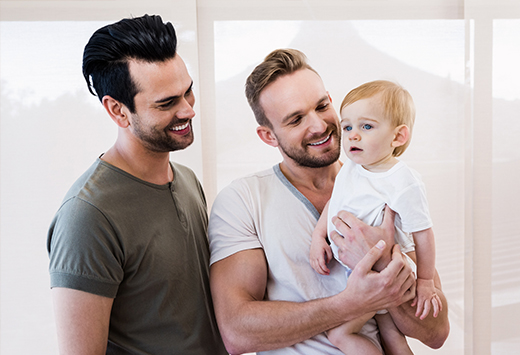There is no one-size-fits-all approach to talking to your child about their adoption. While some children may be curious and open to talking about it, others may not be. Tailoring your approach to your adopted child’s needs is going to be necessary, as well as preparing yourself to answer questions and navigate these conversations.
How you approach and handle curiosity as well as how you meaningfully engage in these conversations with your child is incredibly important, as it will greatly impact your child and your relationship with them.
Here are a few ideas for adoptive parents when talking to your child about their adoption:
- Initiate hard conversations. Some parents assume that if their adopted child wants to talk about adoption, they should wait for them to bring it up. This is not always the best approach. Your child may want to process, ask, or share feelings about their adoption, and they may not feel comfortable or safe starting these hard conversations. Additionally, they may lack language to even articulate what they are thinking and feeling. By initiating conversations first, you can show your child you welcome conversations about adoption and establish that these conversations are safe to have.
- Never shut down curiosity. When your child starts asking questions about their adoption it is important to affirm and celebrate their curiosity. Asking questions about adoption is brave, and it can be really hard for children to engage their parents in curiosity about their stories. Make sure to always praise and embrace their questions, no matter how uncomfortable or awkward it may feel. Establish home as a safe place for courageous conversations and be willing to lean in. A child’s wonder about themselves and their stories is a good thing, so encourage that.
- Be honest. Someone once said, “Tell your children their stories in ways so they don’t have to undo them and rebuild them later.” It is appropriate to wait to share certain details about a child’s adoption until they are developmentally mature enough to process and hold them, but set a foundation of honesty from the start. Share as much as you can when appropriate and be mindful of the language you use. Always speak positively of birth parents and allow your child to create a narrative that feels best for them, knowing that will likely change as they mature and grow.
- Ask for help. Talking to your child about their adoption can feel hard and messy and you may muddle through some conversations and that is okay. Thankfully, you don’t have to go it alone. Reaching out to other adoptive families and asking how they navigated this or seeking out counselors to help facilitate these conversations can be incredibly beneficial.
- Encourage exploration. When your child wants to explore their biological ties or learn more about their story, encourage them in it. This is a very delicate space for them, and they need to be supported in this. Likely, conversations about adoption will elicit more and more feelings of curiosity and a desire to know more. Be prepared for that and how you will navigate that with your child.
Adoptive parents have a responsibility to tactfully and thoughtfully engage their adopted children in conversations about their adoption. While not every conversation will go perfectly, remember there is grace for you in this space, so continue to engage even when it feels hard. Curiosity and feelings surrounding adoption will likely morph and change as your child grows and experiences new seasons of life. What they will need the most is openness and generous assumptions as they come to understand and appreciate their unique story.
By: Ramya Gruneisen




